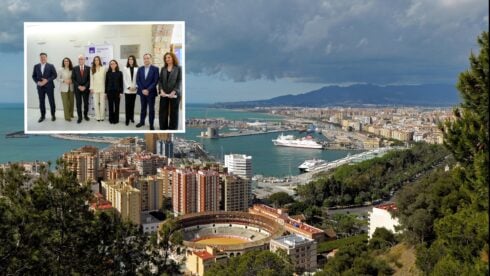SPAIN could face more electricity blackouts this summer unless underlying problems with grid stability are addressed, experts have warned.
The alarm was raised in a report by El Español, which quoted sources within the energy sector saying that the core causes of the 28 April nationwide blackout remain unresolved.
The blackout, known as a ’zero energy’ event, affected the Spanish peninsula and parts of southern France. Investigators have since identified serious imbalances in the power grid’s frequency and inertia as central to the failure.
While temporary measures have been introduced to stabilise the system, such as increasing reliance on so-called synchronous generation from gas, hydro and nuclear power plants, these solutions are considered unsustainable over time.
READ MORE: Spain’s April blackout ‘failure’ is revealed in government report
Industry sources told El Español that continued use of this strategy could distort electricity markets and lead to price hikes for households and businesses.
Concerns have grown as Spain enters the summer season, when power demand typically rises due to increased air conditioning use, while wind energy – normally a key contributor – tends to fall.
This dynamic, known as the ‘thermal gap’, means more gas-fired power is used, which can actually help stabilise the grid.
But experts warn that in sunny midday hours, when solar panels dominate the energy mix, a lack of conventional generation could return Spain to the fragile conditions seen in April.
READ MORE: Spain’s blackout coverup: Event was ‘controlled experiment in green agenda gone wrong’
“If problems of inertia and frequency aren’t solved, especially frequency, which was the main cause of previous surges, we could see more blackouts,” one source told the newspaper.
Government officials have also acknowledged the risks. Spain’s minister for the ecological transition, Sara Aagesen, confirmed in parliament last month that a major overvoltage was recorded in the national grid on the day of the April blackout.
She said three generation failures occurred between 12.32 and 12.33pm, totalling a sudden loss of 2.2 gigawatts across Granada, Badajoz and Sevilla.
The overvoltage caused by the imbalance has been partially blamed on a mismatch between renewable generation and traditional grid requirements.
Although Spain’s wind and solar sectors have expanded rapidly, they are often excluded from providing reactive power – the voltage-balancing force that keeps the grid stable.
Francisco Valverde, an energy market specialist, explained that current regulations dating back to 2000 require only gas, hydro and nuclear plants to provide this service.
READ MORE: Culprit for Spain’s blackout narrowed down to substation in Andalucia
Yet solar installations, he said, are technically capable of doing so via their inverters, but are not yet integrated into the reactive power system.
A draft reform proposed by grid operator Red Eléctrica de España (REE) to include these renewable producers remains stuck in regulatory limbo.
Though pilot projects in Galicia and Andalucía have shown that renewables can participate effectively in voltage control, the national commission on markets and competition (CNMC) has yet to approve the changes.
Until a long-term solution is implemented, experts warn that Spain’s electricity system remains vulnerable – and that without a shift in regulation and planning, further blackouts may be unavoidable.
Click here to read more Other News from The Olive Press.







